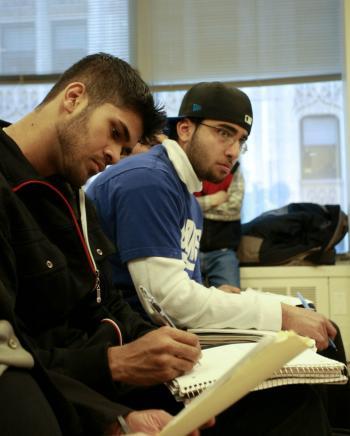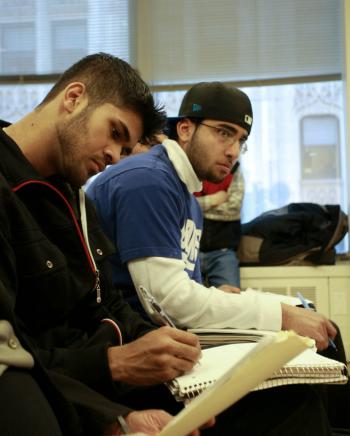NEW YORK—As part of the cost-cutting measures to close a $10 billion deficit, the state budget now requires students to maintain a full course load and a minimum C-grade average to qualify for financial aid through the state’s Tuition Assistance Program (TAP). Students will likely feel the effects of stricter rules when the next school year begins in September.
Higher requirements are meant to ensure that students maintain a basic level of achievement in order to remain on state subsidy, said Jeffrey Gordon of the governor’s office.
Councilman Ydanis Rodriguez and the City Council’s Higher Education Committee discussed possible effects of the new rules on City University of New York (CUNY) students at a council hearing on Thursday.
To qualify for TAP previously, students needed to complete at least 12 credits and maintain a minimum grade point average (GPA) of 1.3, which is equivalent to a D-plus. Now, students will have to complete at least 15 credits and maintain a minimum GPA of 2.0, which is equivalent to a C-grade average.
“Approximately 81.8 percent of students at CUNY work over 20 hours a week,” said Rodriguez, who leads the City Council’s Higher Education Committee. “By increasing the number of credits and requiring the [higher] GPA for a student to receive TAP, we are placing a burden on those young people who can least afford to deal with it.”
Currently, 70 percent of CUNY students receive financial aid, and almost half of these students are TAP recipients, said Rodriguez. CUNY senior college tuition has nearly doubled since 1995, and community college tuition has gone up 57 percent.
“These costs do not include room, board, books, supplies, meals, transportation, and personal expenses,” noted the councilman.
Higher requirements are meant to ensure that students maintain a basic level of achievement in order to remain on state subsidy, said Jeffrey Gordon of the governor’s office.
Councilman Ydanis Rodriguez and the City Council’s Higher Education Committee discussed possible effects of the new rules on City University of New York (CUNY) students at a council hearing on Thursday.
To qualify for TAP previously, students needed to complete at least 12 credits and maintain a minimum grade point average (GPA) of 1.3, which is equivalent to a D-plus. Now, students will have to complete at least 15 credits and maintain a minimum GPA of 2.0, which is equivalent to a C-grade average.
“Approximately 81.8 percent of students at CUNY work over 20 hours a week,” said Rodriguez, who leads the City Council’s Higher Education Committee. “By increasing the number of credits and requiring the [higher] GPA for a student to receive TAP, we are placing a burden on those young people who can least afford to deal with it.”
Currently, 70 percent of CUNY students receive financial aid, and almost half of these students are TAP recipients, said Rodriguez. CUNY senior college tuition has nearly doubled since 1995, and community college tuition has gone up 57 percent.
“These costs do not include room, board, books, supplies, meals, transportation, and personal expenses,” noted the councilman.







